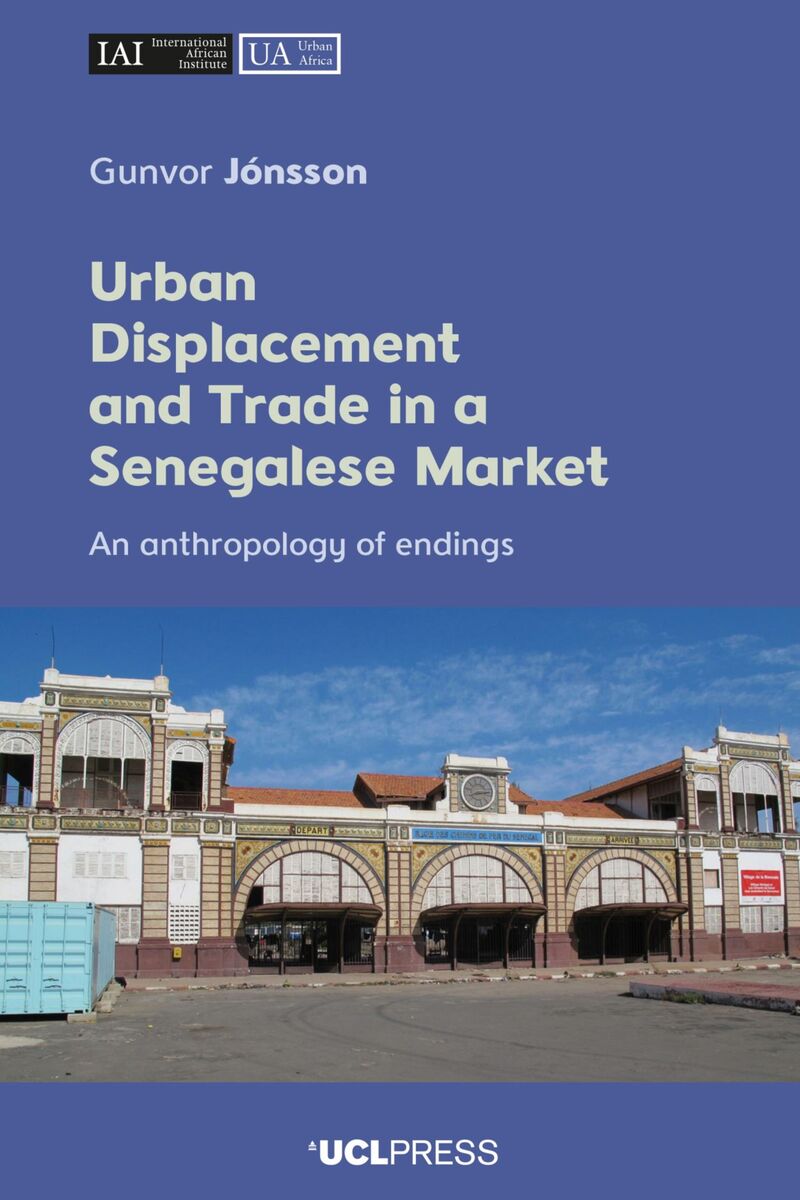Urban Displacement and Trade in a Senegalese Market: An Anthropology of Endings
University College London, 2024
Paper: 978-1-80008-631-9 | Cloth: 978-1-80008-632-6
See other books on: Anthropology | Cultural & Social | Endings | Social Science | Trade
See other titles from University College London
Paper: 978-1-80008-631-9 | Cloth: 978-1-80008-632-6
ABOUT THIS BOOK | AUTHOR BIOGRAPHY | TOC
ABOUT THIS BOOK
A close look at people’s adaptivity and their capacities to adjust to new circumstances and environments in the face of urban displacement, with a special focus on Dakar.
The Malian market at the terminus in Dakar was bulldozed in 2009 and, following the privatization of the railway, passenger services in Senegal soon ceased altogether. The consequences were felt especially by women traders who had traveled the line since its inauguration, making the terminus in Dakar the center of a thriving network of traders and migrants. To examine the fates of those whose livelihoods were destroyed or disrupted, Gunvor Jónsson spent a year with the women evicted from the terminus. Urban Displacement and Trade in a Senegalese Market explores what happens at the end of urban displacement, when people find themselves scattered in sometimes unfamiliar surroundings, trying to pick up the pieces and create something meaningful.
In this book, Jónsson argues that rupture and ensuing displacement do not produce a clean slate where identities, networks, and histories must be produced from scratch. When evicted, traders and their markets do not simply vanish into thin air. The book examines not only what is lost but what emerges when a dense node, such as the terminus, is dissolved and fragmented. The ethnography of the traders reveals that the aftermath of eviction in cities may lead to diasporic forms of consciousness and identity formations. Displacement, whether on a local or global scale, demands difficult adjustments, and people’s capacities to adapt to new circumstances and environments vary. This book uncovers the different capacities and variations in traders’ reactions to displacement.
The Malian market at the terminus in Dakar was bulldozed in 2009 and, following the privatization of the railway, passenger services in Senegal soon ceased altogether. The consequences were felt especially by women traders who had traveled the line since its inauguration, making the terminus in Dakar the center of a thriving network of traders and migrants. To examine the fates of those whose livelihoods were destroyed or disrupted, Gunvor Jónsson spent a year with the women evicted from the terminus. Urban Displacement and Trade in a Senegalese Market explores what happens at the end of urban displacement, when people find themselves scattered in sometimes unfamiliar surroundings, trying to pick up the pieces and create something meaningful.
In this book, Jónsson argues that rupture and ensuing displacement do not produce a clean slate where identities, networks, and histories must be produced from scratch. When evicted, traders and their markets do not simply vanish into thin air. The book examines not only what is lost but what emerges when a dense node, such as the terminus, is dissolved and fragmented. The ethnography of the traders reveals that the aftermath of eviction in cities may lead to diasporic forms of consciousness and identity formations. Displacement, whether on a local or global scale, demands difficult adjustments, and people’s capacities to adapt to new circumstances and environments vary. This book uncovers the different capacities and variations in traders’ reactions to displacement.
See other books on: Anthropology | Cultural & Social | Endings | Social Science | Trade
See other titles from University College London












